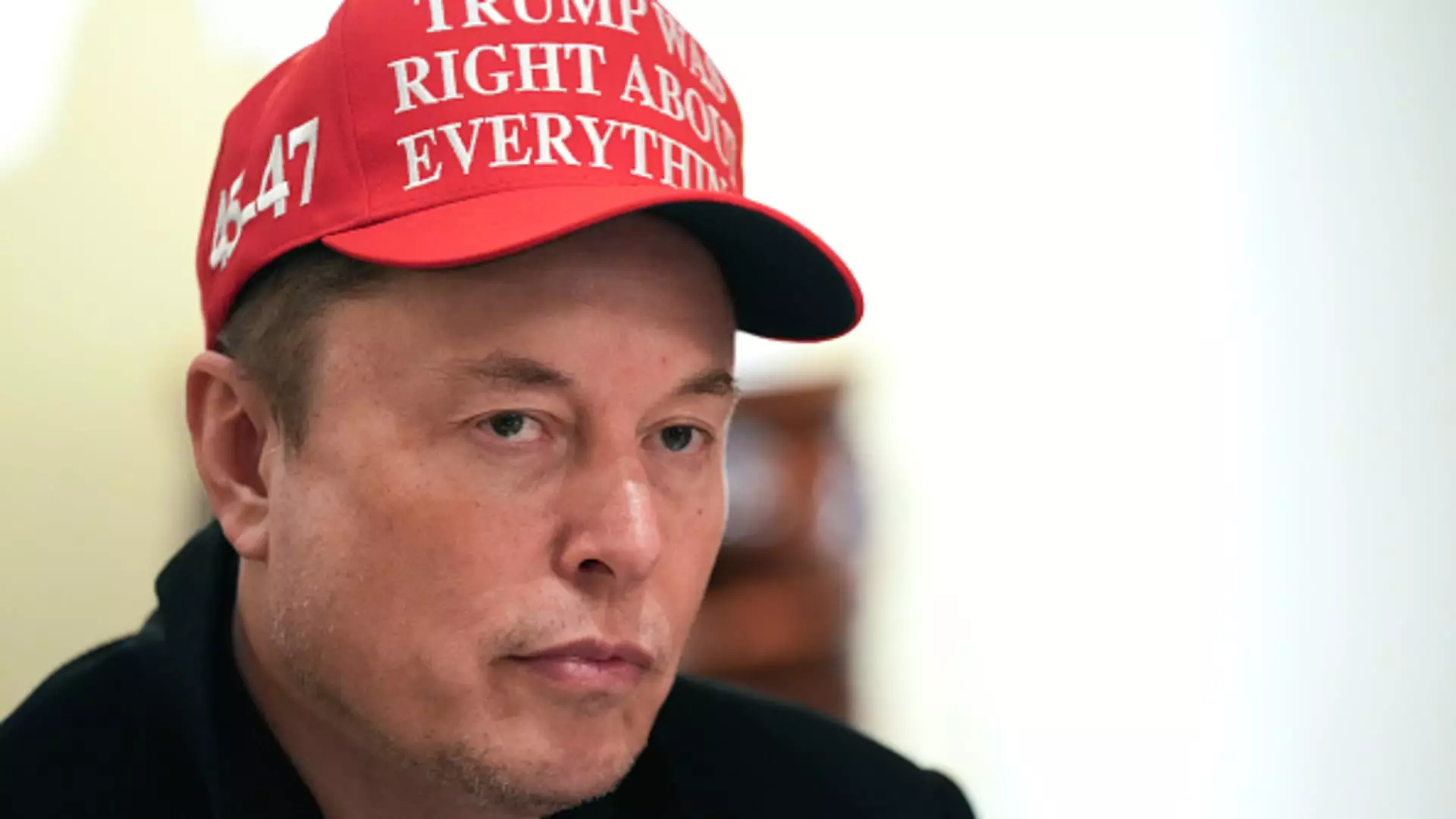Tesla’s stock has witnessed a staggering decline, hitting almost a 6% drop with recent trading sessions pushing its value down 44% for the year. Just last week, Tesla shares closed at $227.50, precariously close to the nadir of $221.50 marked in early April. The situation has reached a tipping point, prompting analysts to express deep concerns about “ongoing brand erosion.” This situation reflects not just fluctuations in the stock market but poses existential questions about the sustainability of Tesla’s brand amidst Elon Musk’s increasing political follies. The swift descent of Tesla’s share price echoes a larger narrative—one where investor confidence is being undermined by Musk’s distractions outside the electric vehicle sector.
The Political Quagmire of Elon Musk
Elon Musk’s fixation with politics, particularly his affiliation with the Trump administration, has become an albatross around Tesla’s neck. His high-profile decisions, such as allocating $290 million to retake the White House for Trump and advocating job cuts within government sectors, have left many investors gnashing their teeth. In a time when companies must diligently sidestep political pitfalls to protect their brands, Musk seems to blaze a trail into controversy. This has not only irritated investors but has also empowered foes, leading to organized protests and even criminal actions against Tesla vehicles and facilities. Picture the public’s growing contempt—especially in Europe and parts of the U.S.—echoing through the streets, marking Tesla as the villain of modern corporate tales.
Self-Driving: The Dwindling Promise
Tesla’s ambitious self-driving technology, long the jewel in its crown, is losing its luster. Analysts are aware of Tesla’s ongoing challenges in delivering a long-awaited robotaxi service, which has been delayed time and again. Furthermore, the market queries whether Tesla is steering towards a technology cliff, unable to provide the innovation it’s promised. In a recent earnings call, the flood of inquiries—over 300 about self-driving systems alone—may reflect a desperate seeking of reassurance from both investors and consumers tired of waiting for something that feels like an eternal promise.
A Steep Decline in Consumer Sentiment
Perhaps most telling is the significant shift in consumer sentiment surrounding Tesla. According to Caliber research, only 27% of surveyed individuals in March showed interest in purchasing a Tesla, down from an impressive 46% just over a year prior. This marked drop reveals a deep-seated apprehension among potential buyers, now less willing to attach themselves to a company that has become synonymous with political strife under the stewardship of Musk. The disconnect demonstrates how Musk’s political gambits have likely fostered a sense of disillusionment among the very consumers who once viewed his products as aspirational symbols of sustainability and innovation.
The China Factor: A Market at Risk
Elon Musk’s troubles compound further when turned towards the metrics in China, a critical market for Tesla. Analysts note that nationalistic consumer trends combined with burgeoning local competition could spell disaster for Tesla’s sales and margins. Reports signal an impending issue where the company might need to export its China-manufactured vehicles to counterbalance domestic underperformance, further leading to potential “downward pressure on pricing.” If the current trajectory continues, Tesla could lose its edge against homegrown electric vehicle brands, which are growing in both number and consumer favor.
Investor Reflections and Future Implications
In the world of finance, perceptions often become realities, and Tesla’s stock has weathered a particularly stormy climate since Musk’s political activism took center stage. Analysts at Wedbush Securities, who had once been fervent supporters, are now suggesting that Musk’s antics could have inflicted a permanent wave of “demand destruction” among potential buyers—an alarming prediction for shareholders counting on Tesla’s rebound. Meanwhile, Barclays has downgraded its price target for Tesla while insisting upon a perplexing scenario as the business attempts to reconcile its aspirations with its reality.
In a bizarre twist of fate, Tesla has inadvertently positioned itself as a “political symbol” within a divided global landscape. The company’s future hinges not only on its innovation and sales but significantly on restoring public perception. Will Elon Musk recalibrate his focus back to the company that brought him fame, or will Tesla remain ensnared in his political escapades? Only time will tell, but for investors, the stakes have never been higher.

